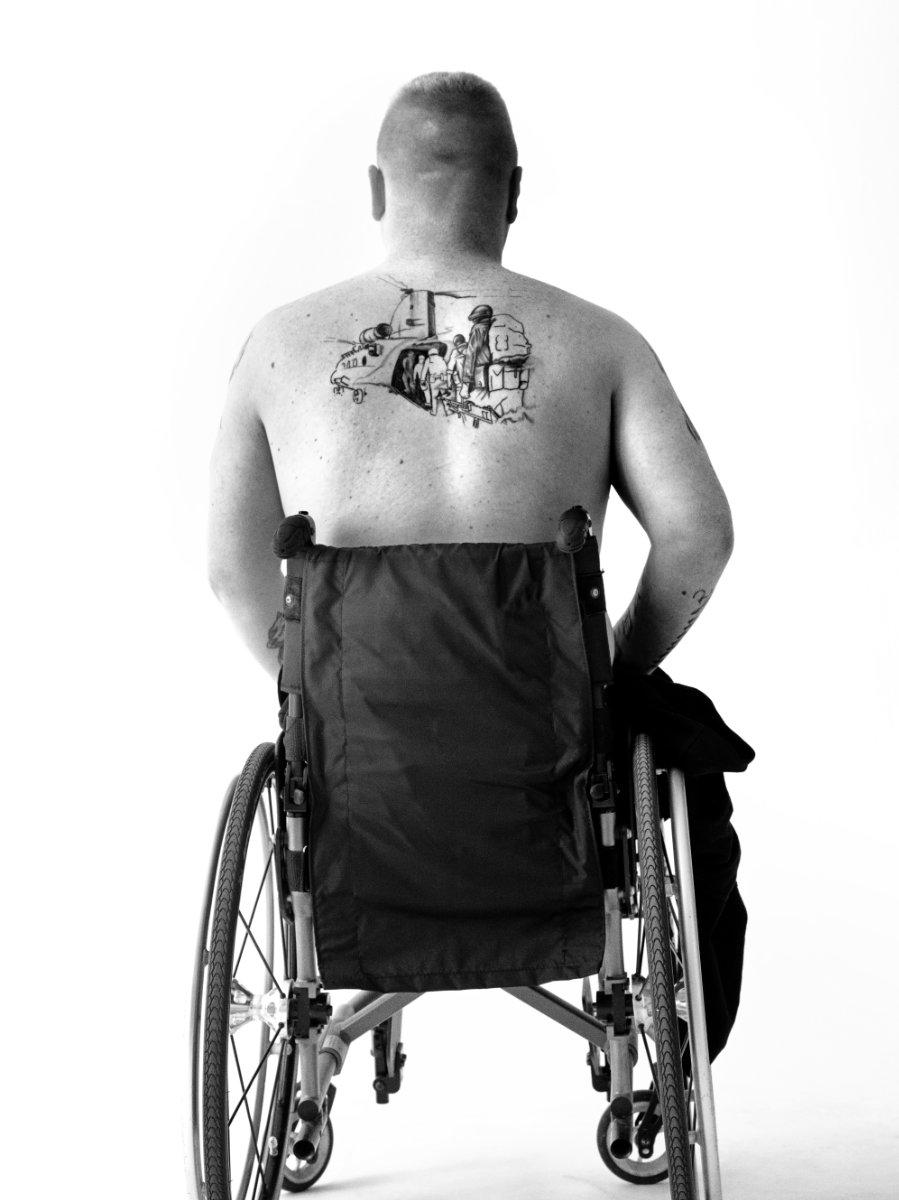
Ranger
Andy Allen
I joined the Army in March 2006, did the training and deployed to Afghanistan in March 2008 with The Royal Irish Regiment. Part of my job there was to mentor the Afghan National Army and to develop them to be able to run their own country and defend it. When my accident happened, we had been deployed about three weeks. We were out on a routine patrol that we’d done loads of times before. I don’t remember any of what happened, but my mates told me about it when I was in hospital. We’d stopped for a ten-minute break, and then the boss gave us the go-ahead to get up and move. As I put my kit on, there was a large bang and a lot of commotion and chaos. When the dust cloud settled, one of my mates turned to see where I was. I wasn’t there so he looked around and saw me lying in the main irrigation canal, in quite a bad way. He immediately started administering first aid, and called for the other team medic and the boss to get me out, while the Platoon Sergeant was giving the order for a helicopter to extract me to Bastion.
My next memory is about two and a half months later, because I was sedated for seven weeks. I remember being brought round in Selly Oak Hospital in Birmingham. My younger brother was there—he, my mum and my sister had been taking it in turns to stay with me, and he was the one who was there when I came round. I kept telling him that it wasn’t my fault. For some reason, I just wanted to get it across to everybody that what had happened wasn’t my fault. I had this thing in my head that people were going to say it was. I don’t really remember how I felt when I realised how serious my injuries were. When I woke up I knew that I’d lost my legs. I was really confused; I thought it was my wife Natalie’s turn to come over from Northern Ireland where we were living. She wasn’t due to come over for another two weeks, but she ended up coming over early. When you’re in recovery, you just don’t know what’s happening.
I left Selly Oak on 7th October, when I went to Headley Court to start rehabilitation with some of the other guys. I had a lot of setbacks. I was only nineteen when I got blown up. My body was still growing, so the leg thought that it was broken and it grew out to try and reattach to another bone, so I only just got that cut away in October last year. Initially, my eyesight was also really bad, but with the good work of the ophthalmologist, I’ve got some of my eyesight back. That has made my life a lot easier. It was frustrating when I needed someone’s help to read a letter. Now I’ve got a bit of sight back, I’m able to hold a letter up to my face to read it. It is a struggle, sometimes you can misinterpret what it says, but at least I can do it.
I always try to do everything myself once or twice, before getting someone to help me. You just have to get on with it, there’s no point moping around. In daily life, I can more or less manage on my own. I can stay in the house on my own, make my own tea, things like that. Blind Veterans UK have given me the apparatus to make tea; the mug beeps when the water level is getting up high. You also learn to adapt yourself. Something I’ve come up with is, instead of pouring the water in before you put the tea bag in, you put the tea bag in first. Then the water darkens as you’re pouring it in. I can see darker colours better, so that helps. It’s a learning curve.
I really appreciate the help Blind Veterans UK have given me. They stayed in the background and gave me space until I needed them. It wasn’t until I went to Headley Court that a representative came to see me and told me who they were and how they could help me. They’d already given me a talking watch in hospital. When you’re lying in the hospital bed, not knowing what’s going on and not knowing the time, it drives you crazy. Then just being able to press a button so that the watch tells you the time—you can’t imagine how good it is.
When I was blown up, Natalie was five months pregnant, so what happened to me brought quite a bit of unwanted pressure. It was hard being stuck in Headley Court away from our newborn son. But it also gave me that extra incentive to recover. There was a lot of stuff I looked forward to. My boy Carter is nearly three now. My main aim is to get up walking and be able to play football with him, not play properly but at least be able to kick a ball to him.
Having my family beside me is what’s brought me through this.